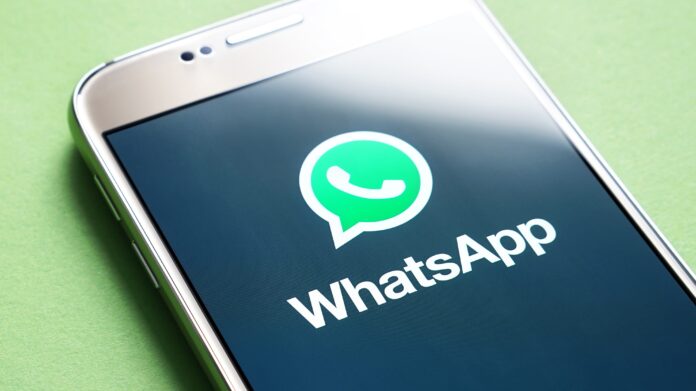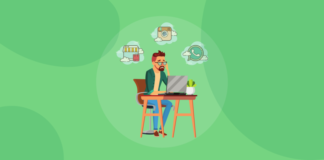Tips for Protecting your privacy on WhatsApp
WhatsApp is the most popular global mobile messenger app based on the number of monthly active users, according to Statista.
Currently, WhatsApp has over 2.78 billion monthly active users in over 180 countries. It is predicted that this number will reach 3.14 billion by 2025.
WhatsApp is a valuable tool for cross-functional team collaboration, thanks to its user-friendly interface, end-to-end encryption, and real-time interaction capabilities. However, it is crucial to recognise potential security and privacy risks.
Despite the platform’s use of encryption, vulnerabilities exist that could expose users to hacking threats.
Recent changes in privacy policies, particularly increased data sharing with Meta, WhatsApp’s parent company, has raised concerns and sparked discussions about users’ privacy.
Regardless, there are a few things that every WhatsApp user can do to tighten security and avert potential harm.
Use disappearing option
Protect sensitive data with disappearing options for added privacy. Opt for View Once when sending photos and media, allowing recipients to view the message just once, without the ability to save, forward, screenshot, or share it.
This feature extends to voice notes, ensuring they can be played only once.
Enhance privacy by disabling read receipts and utilising disappearing messages to safeguard important chats.
However, a digital marketer, Joel Ozue, said, “It’s not always going to be all sweet because there are times you would want to retrieve those conversations and you won’t be able to find them. So, that’s a problem. Activating disappearing messages has both the good side and the bad side; you have to make the choice. I won’t activate that, though.”
Use WhatsApp’s latest version
The latest versions of WhatsApp usually have security benefits.
It’s important to always verify the app’s authenticity by checking the correct logo and confirming the name as “WhatsApp”.
Beware of fake apps that pose security risks, such as sending spam and scams without your awareness.
Ozue noted, “What I don’t like about the newest version of WhatsApp is how status updates are displayed. It’s not like before, when you could easily choose the WhatsApp status you want to view. Those who are still using the older version of WhatsApp benefit from this.”
Activate chat lock
Enhance conversations with Chat Lock. It isolates specific chat threads, accessible only with a unique password, distinct from your device password.
This extra layer of protection ensures the privacy of chats containing personal or financial information, even if someone gains access to your phone.
Read Also:
A software developer, Ifeanyi Ojukwu, noted, “You can secure WhatsApp by using an app lock, which is available on some phones or can be downloaded separately.”
However, despite efforts to maintain privacy, the software developer said it’s worth noting that individuals often capture screenshots of conversations, making privacy a challenging aspect of our daily interactions.
He added that by scanning the QR code of the person, you are chatting with, you can enhance the security of the conversation through end-to-end encryption.
Beware of scam
Guarding against scams is crucial in various forms, be it calls, emails, or messages. The initial defence involves taking a moment to reflect. When confronted with a suspicious message seeking personal information, scrutinise the sender’s identity.
Check if you recognise the contact, share common groups, or if the message aligns with your current location.
WhatsApp offers the option to immediately block an unknown contact.
Additionally, reporting and blocking suspicious contacts later on is a simple yet effective way to maintain the security of your account.
A software engineer, Terry Lambert, warned via Quora that if someone gained access to a physical device where WhatsApp had been used, but none of the information is private.
According to Lambert, the data can be read out, emphasising the potential vulnerability of information stored on the messaging platform in such scenarios.
“If you have currently logged in a session for WhatsApp on the device, you can do a lot more than that, utilising the session token. In terms of safety, it’s not going to make your phone battery explode, so I’m not sure how it could be unsafe. But it’s not guaranteed for you to have privacy.”
Linking your WhatsApp
These days, WhatsApp lets you link up to four devices to your primary phone for an uninterrupted chat experience. Caution must be applied here when doing this.
Make sure you are linking to the correct URL web.whatsapp.com or have the official app (from whatsapp.com/download or the app store).
You can also review your linked devices by going to Settings>Linked Devices and logging out of any device you don’t recognise.
Backup Whatsapp messages
Backing up your WhatsApp messages is highly recommended to prevent the loss of important conversations and media. You can back up your messages and media to Google Drive on Android or iCloud on iOS.
Two-step verification
A cybersecurity analyst at SAP, Jerameel Madumere, said activating two-step authentications should be the basic security measure for every WhatsApp user.
He said two-factor authentication adds an extra layer of security to WhatsApp accounts, making it more difficult for hackers to gain access to your account.
However, he warned, “If you lose access to your phone number or device, you may not be able to access your account, even with two-factor authentication enabled.”




















